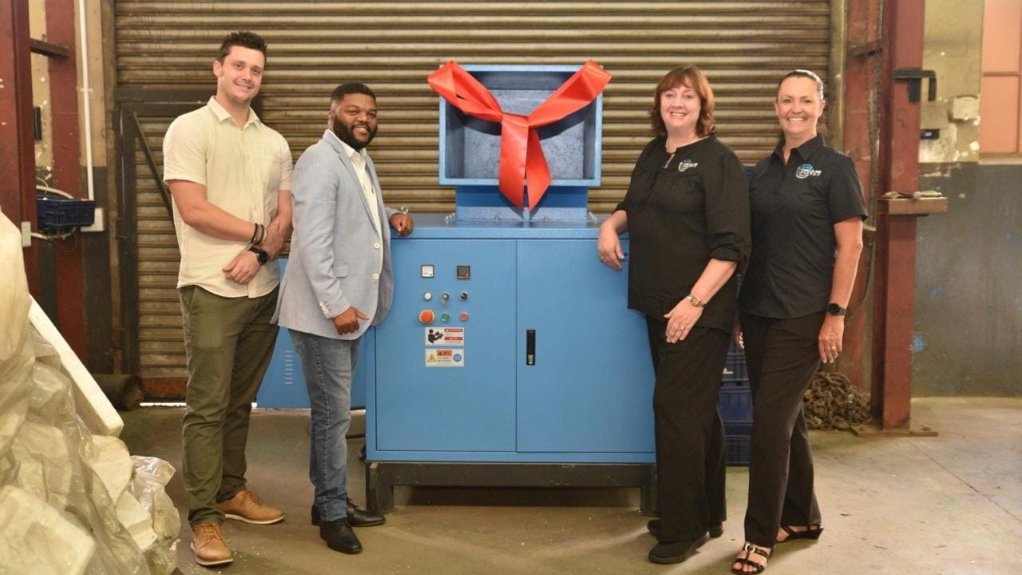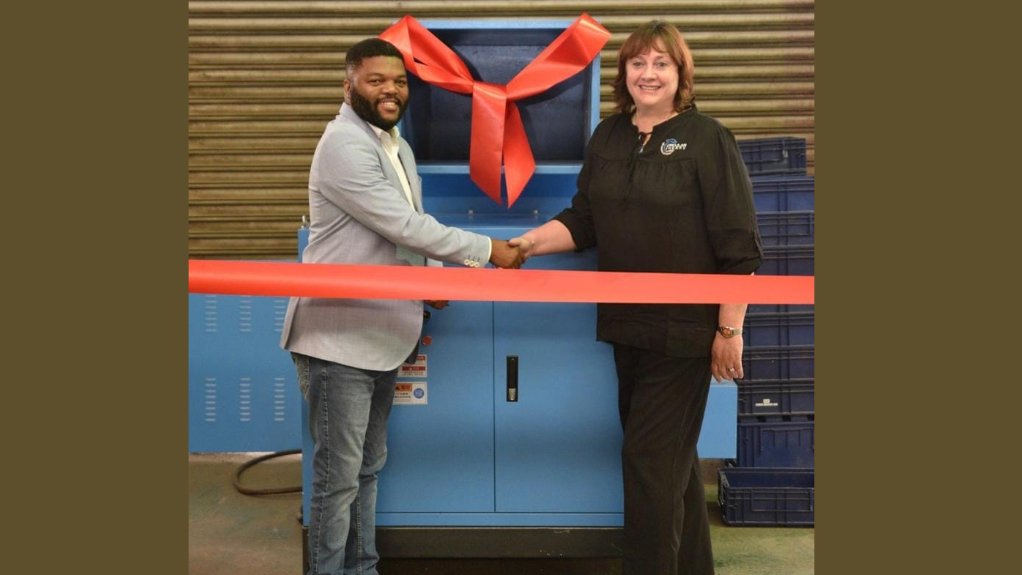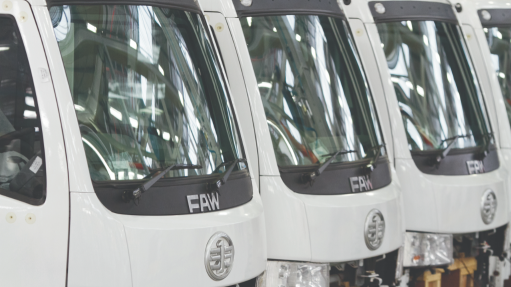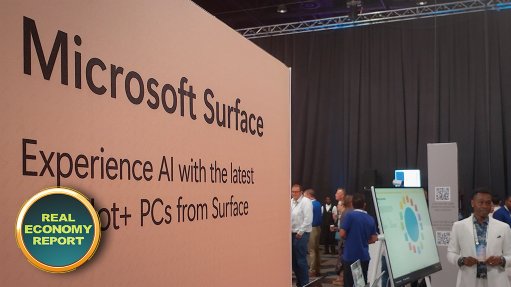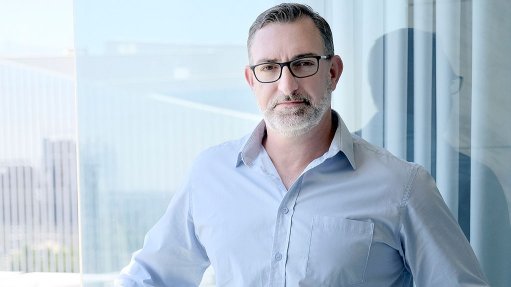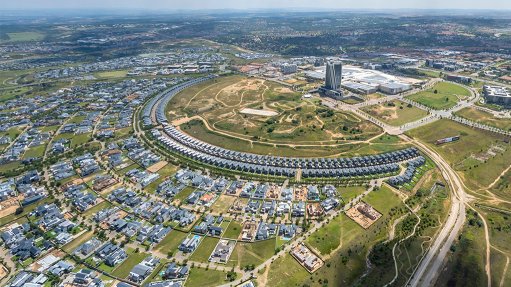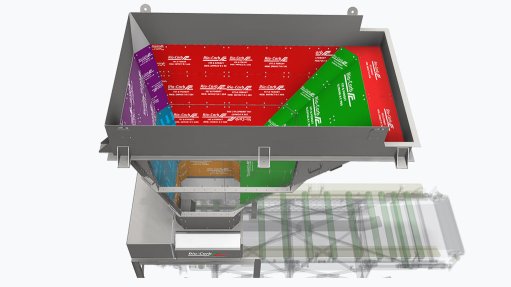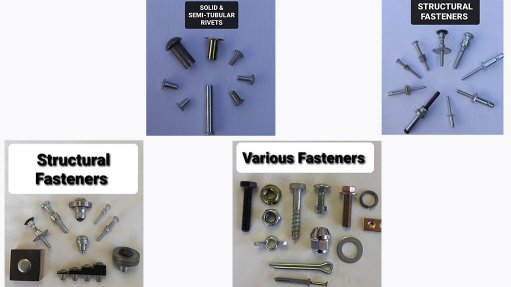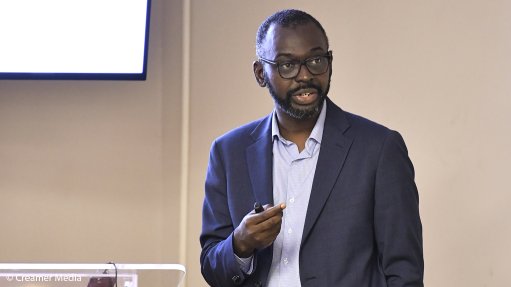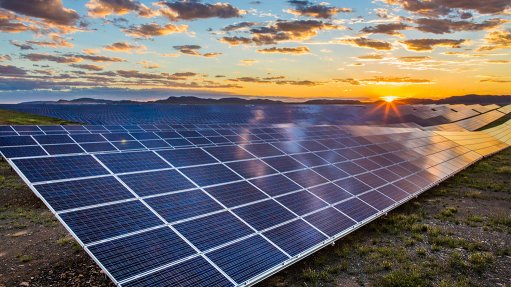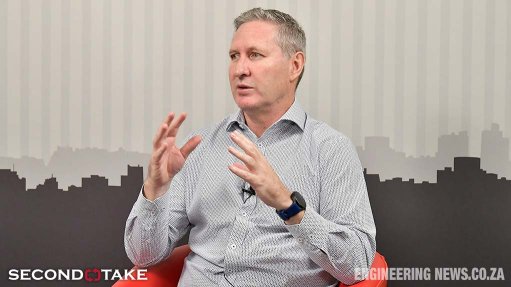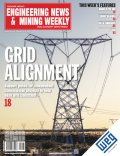How Circular Energy and LG Electronics are cutting through the expanded polystyrene waste challenge
This article has been supplied and will be available for a limited time only on this website.
In an era where sustainability is high on everyone’s agenda, recycling technologies and practices are in the spotlight more than ever, writes Patricia Schroder, CEO of Circular Energy. The challenges posed by waste – especially lightweight yet bulky materials like expanded polystyrene (EPS) – have inspired innovative collaborations and solutions within industries that readily utilise these materials, such as the partnership between Circular Energy and LG Electronics to address the recycling challenges of EPS waste in South Africa.
EPS, commonly found in products ranging from packaging to insulation, presents unique recycling hurdles due to its volume and air content – the Circular Energy-LG Electronics partnership seeks to help overcome this issue by repurposing EPS into secondary raw materials using a cutting-edge melting machine. Circular Energy operates as a producer responsibility organisation (PRO) and will be assisting LG in meeting its extended producer responsibility (EPR) obligations under South African regulations.
The term ‘circular economy’ refers to an economic system aimed at eliminating waste through the continual use of resources. It differs from the current linear economy, which follows a ‘take, make, dispose’ model. By focusing on recycling, Circular Energy and LG Electronics aim to close the gap in EPS waste by redefining discarded materials as valuable resources, in order to reshape the foundations of material management within the industry.
While polystyrene is a very useful material, it creates logistical issues when it comes to recycling, due to the sheer volume of it when it needs to be collected. If one thinks of everyday consumer items such as food and beverages, or electronics like cellphones, microwave ovens and other household appliances, so many of these are packed in polystyrene which adds up to tons that must be collected.
The bulk and quantity of polystyrene collected create logistical problems and complicate transportation. Another challenge when it comes to recycling polystyrene is cross-contamination, particularly when dealing with food-grade polystyrene. Ensuring that collected materials are clean is paramount for successful recycling, as contamination can derail the entire process. Efforts to source materials closer to their origin are vital in minimising these risks and ensuring a higher quality of recycled products.
These challenges have however brought forth the development of innovative solutions such as the new melting machine that Circular Energy has provided to RevoWaste, the company that handles the waste collection for LG and many other companies. This machine is expected to radically improve efficiency by transforming EPS into a more compact form suitable for transporting.
RevoWaste recycles an enormous quantity of polystyrene every year – roughly enough to fill three Ellis Park stadiums. The polystyrene is melted and prepared for use by companies like Supreme Mouldings which transforms it into beautiful décor items such as skirting boards, wall panels, picture frames and mouldings.
RevoWaste’s products have an ignition point of around 232°C; however, the melting process is non-toxic. Fire retardants are also added – without compromising quality – which reflects the company’s commitment to safety alongside sustainability.
Supreme Mouldings’ commitment to sustainability, integrating nearly 100% recycled polystyrene in its production, exemplifies the tangible benefits of collaborations in the recycling ecosystem. The company’s approach highlights an essential aspect of the circular economy: the importance of reusing materials and minimising the reckless discarding of waste.
In addition, as consumer awareness around sustainability grows, companies involved in recycling initiatives are likely to see increased recognition and support. As evidenced by RevoWaste and Supreme Mouldings, the momentum for sustainable practices is growing, bolstered by the heightened expectations of retailers and consumers. Implementing robust recycling processes and maintaining transparency throughout production not only enhances a company’s sustainability efforts, but also strengthens its brand image.
LG has seen the foundational benefits of collaborating with a company like Circular Energy, emphasising how such initiatives align with its own sustainability identity. It is increasingly apparent that the promise of sustainability lies in cross-industry collaborations that empower companies to work towards common environmental goals, sharing expertise, resources, and best practices.
But while the optimism around such partnerships is warranted, it’s crucial to remain vigilant about the challenges that lie ahead. Transitioning to fully sustainable practices will require not only technological advancements, but also a cultural shift across organisations and industries. There must be a collective commitment to prioritising recycling, investment in innovative technologies, and fostering an environment in which sustainable practices are rewarded rather than disparaged.
Finally, the journey towards a circular economy hinges on the ability to rethink waste as a valuable resource. The partnership between Circular Energy and LG Electronics, alongside the efforts of companies like Supreme Mouldings, illustrates the transformative potential of recycling EPS waste. By approaching waste management with creativity and collaboration, the groundwork for a healthier environment can be laid, ensuring that discarded materials regain their value.
Comments
Announcements
What's On
Subscribe to improve your user experience...
Option 1 (equivalent of R125 a month):
Receive a weekly copy of Creamer Media's Engineering News & Mining Weekly magazine
(print copy for those in South Africa and e-magazine for those outside of South Africa)
Receive daily email newsletters
Access to full search results
Access archive of magazine back copies
Access to Projects in Progress
Access to ONE Research Report of your choice in PDF format
Option 2 (equivalent of R375 a month):
All benefits from Option 1
PLUS
Access to Creamer Media's Research Channel Africa for ALL Research Reports, in PDF format, on various industrial and mining sectors
including Electricity; Water; Energy Transition; Hydrogen; Roads, Rail and Ports; Coal; Gold; Platinum; Battery Metals; etc.
Already a subscriber?
Forgotten your password?
Receive weekly copy of Creamer Media's Engineering News & Mining Weekly magazine (print copy for those in South Africa and e-magazine for those outside of South Africa)
➕
Recieve daily email newsletters
➕
Access to full search results
➕
Access archive of magazine back copies
➕
Access to Projects in Progress
➕
Access to ONE Research Report of your choice in PDF format
RESEARCH CHANNEL AFRICA
R4500 (equivalent of R375 a month)
SUBSCRIBEAll benefits from Option 1
➕
Access to Creamer Media's Research Channel Africa for ALL Research Reports on various industrial and mining sectors, in PDF format, including on:
Electricity
➕
Water
➕
Energy Transition
➕
Hydrogen
➕
Roads, Rail and Ports
➕
Coal
➕
Gold
➕
Platinum
➕
Battery Metals
➕
etc.
Receive all benefits from Option 1 or Option 2 delivered to numerous people at your company
➕
Multiple User names and Passwords for simultaneous log-ins
➕
Intranet integration access to all in your organisation



